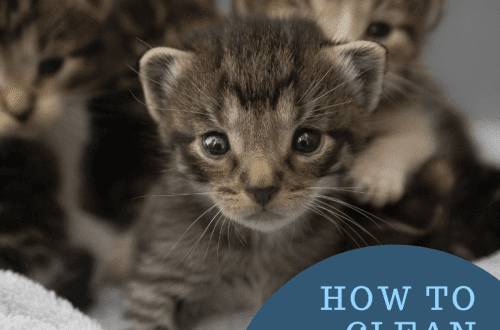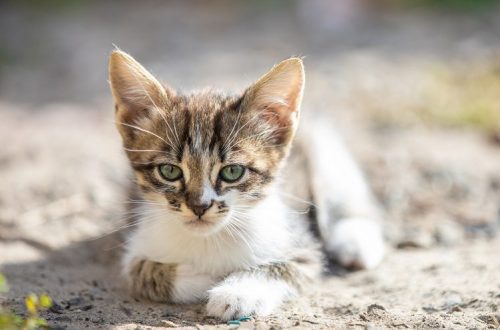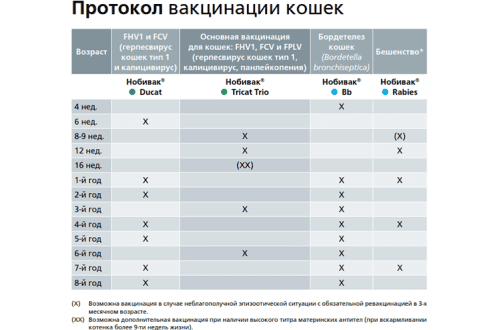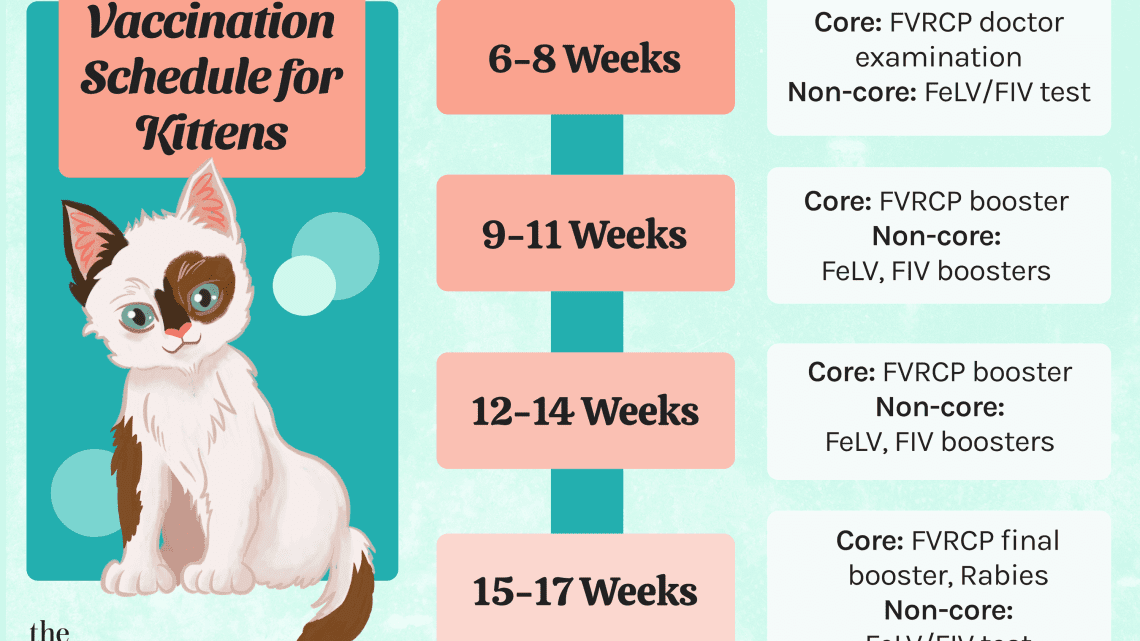
When you can give and take kittens – the optimal age

Contents
Stages of development of a kitten
The first two months after birth, the kitten is very dependent on the cat mother, who teaches him all the basic skills for an independent life: feed, move, defecate, lick and keep himself safe.
A helpless newborn adopts all this from his mother, from whom they should not be separated immediately in any case. Therefore, before taking a kitten into your home, it is better to find out at what age he is and whether he still lives with his mother.
Consider the main stages of development of a kitten:
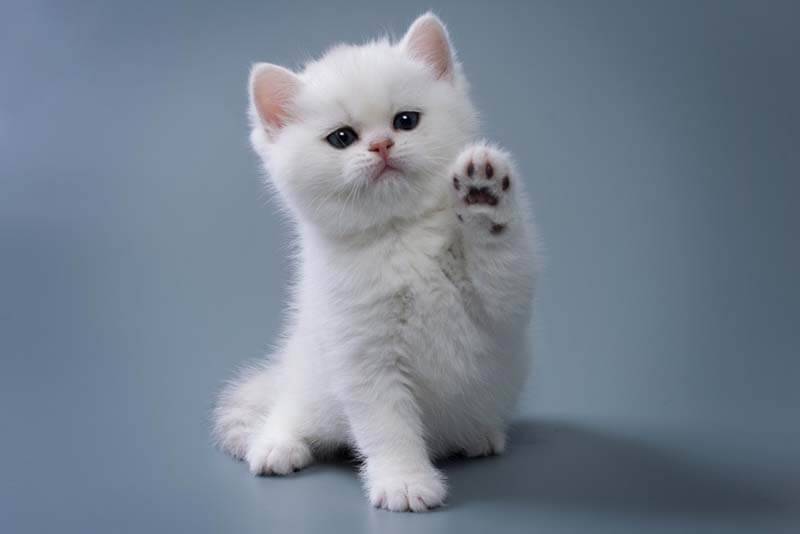
0–1,5 Sunday
Kittens are born blind, cannot keep their balance and move freely, so they spend the first one and a half weeks from the moment of birth joining their mother and only trying to crawl next to them. At first, babies are not able to empty their intestines on their own, so the cat mother helps them cope with this task.
1,5–3 Sunday
During this time, the kids grow quite strongly – they become three times as large and reach 300-400 grams in weight. Kittens begin to see the world around them with their own eyes, which are already opening, but are not yet able to focus on objects. The third week ends with teething and the first confident steps.
3–6 Sunday
In these twenty days of life, the fluffy lump demonstrates independent orientation and confident movement in space. The kitten continues to grow teeth, the number of which reaches twenty-six. You can start feeding a monthly kitten with solid food and carefully take it in your arms for a short time – the cat also needs rest and is unlikely to mind, because the baby has already grown up.
6–12 Sunday
The baby continues to grow up and master all the necessary key skills for the transition to a full independent life. The kitten’s mouth is now just like that of an adult – all the teeth grow, so the diet consists almost entirely of solid food. The body of the kitten becomes more developed, strong and able to tolerate vaccination. Therefore, at this time, the baby is taken to the veterinarian for the first vaccination.
12 weeks and older
By three months, a kitten usually reaches the peak of its development and is ready to begin adulthood. They develop immunity, develop character, show curiosity and playfulness. The transition from mother’s milk and mixed nutrition to only solid food is being completed.
It is at this time that the period begins when kittens can be weaned from the cat and given to new owners, where they can live without a mother and her help.
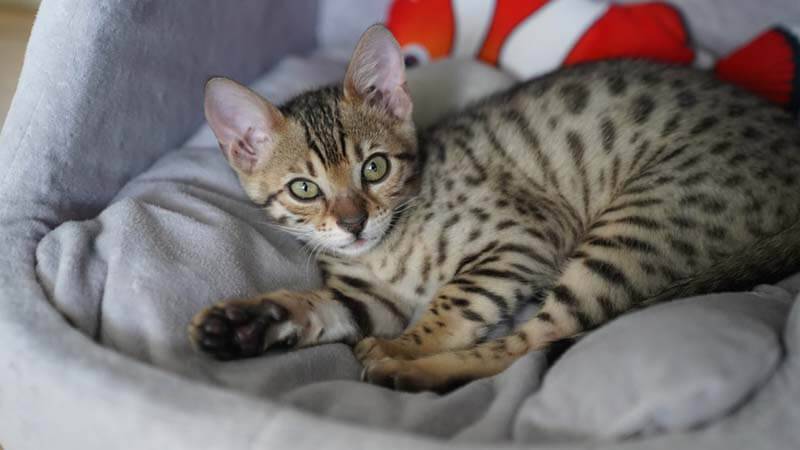
Why you shouldn’t separate a newborn kitten from its mother
First of all, it can adversely affect the health of both mother and baby. At this time, the newborn and his parent are going through (both physically and emotionally) a very stressful period, both instincts are sharply triggered, so separation can have a strong negative effect and become too much stress for them. Such trauma can affect the physical and emotional well-being of pets throughout their lives.
In addition, a kitten that has just been born is a helpless creature, incapable of independent life. Therefore, until the cat teaches him all the most necessary things and until his body reaches a certain stage of development, they cannot be separated. If you want your future pet to be healthy and developed, do not take a newborn kitten home, let him grow up and get stronger.
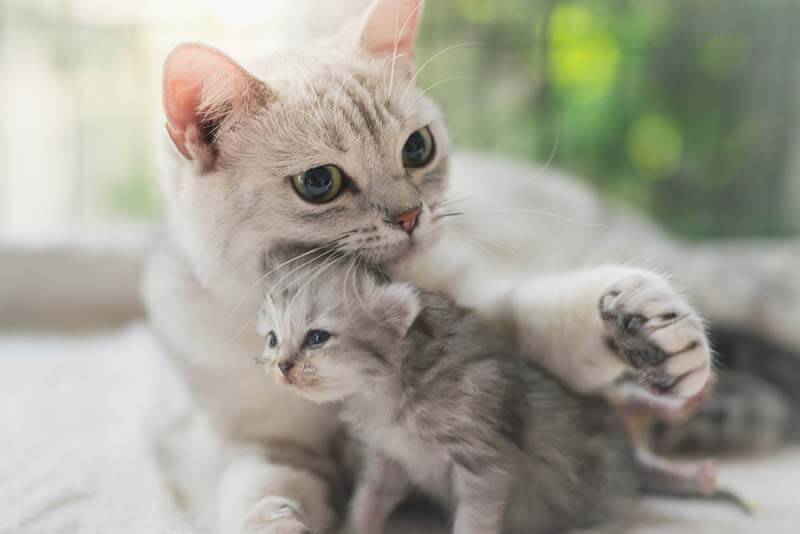
Skills that a cat passes on to a kitten
The cat takes care of her cubs from birth and gradually teaches them everything they need for life so that they can manage on their own. Therefore, kittens are weaned from the cat at the age of three months, when they have learned all of the following:
The first skills that kittens learn when their eyes are opened are moving around on their four legs and reacting to strangers and possible danger.
Mom teaches not only how to “prick up your ears”, but also how to interact with people, animals and objects. Behavioral skills instilled by a cat mom help the baby adapt to different situations and prepare for further independent existence.
The cat starts learning the basics of personal hygiene when her child reaches the age of one month. She shows you how to properly wash your face, lick yourself thoroughly, and brush your hair thoroughly. Also, the kitten learns hygiene procedures after eating and going to the toilet.
Stronger by a month from birth, kittens, following their mother’s example, learn to walk around, exploring the territory of the dwelling. The development of new territories – a skill necessary for any animal – is also transmitted from a mother cat to her babies.
Another important skill for a pet is to go to the toilet in a certain place. Using her personal example, the cat shows the cubs that they need to relieve themselves and empty their intestines in a special tray.
Having learned these parenting lessons and mastering the key skills for adulthood, the kitten is able to move on on its own.
When can I take kittens from a cat?
It is believed that at the age of three months, a kitten can be taken away from a cat, since it is already sufficiently developed and has the necessary skills for life without a mother. However, this general recommendation is not necessarily the only correct solution. When breeders decide whether kittens can be distributed to new owners, they do not count the number of days or months that have passed since their birth. The main guideline is their ability to independently cope with the daily activities and needs of the cat.
We list the main things that a kitten should be able to do in order to calmly go to live in a new home:
stand firmly on its paws and move;
to absorb solid food without someone else’s help;
associate the tray with a place to go to the toilet;
lick yourself regularly and as needed.
The baby gains experience and the listed skills from a cat in its first 12 weeks, so after 3 months from the moment of birth, the kitten can already be taken to a new family.
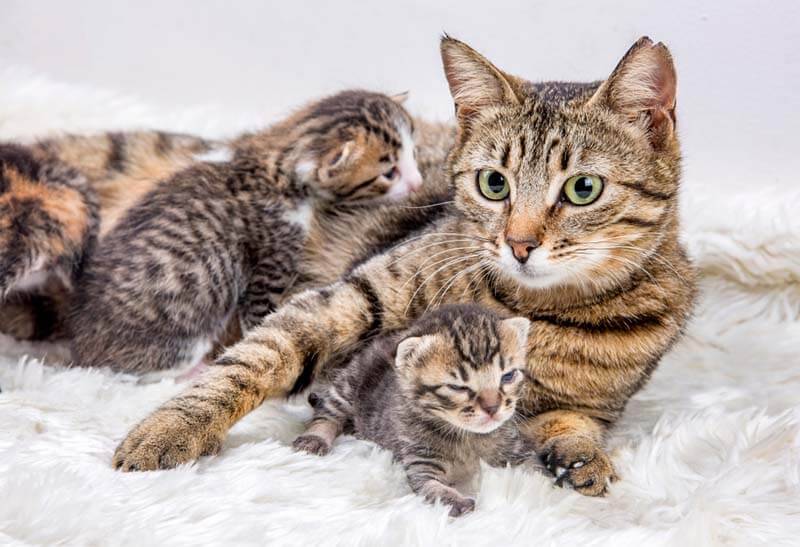
If pick up too soon
Sometimes breeders offer to pick up a kitten only 1 month after birth, but is it possible to do this and what is the threat to the baby? It is possible if the pet is an orphan. If he has a mother, then it is worth waiting another 1,5–2 months, otherwise you can ruin the baby’s life.
First, physiological problems may begin. Mother’s milk, which kittens eat from birth until they are fully accustomed to solid food, is a necessary source of nutrition for a newborn at first. It contains special enzymes on which the proper digestion and immunity of the baby depends. Deprived of the opportunity to receive useful trace elements from mother’s milk, the kitten will begin to experience problems with digestion and stool, dysbacteriosis and diarrhea may develop. In addition, at first, he is simply not able to eat solid food.
In addition to problems with the gastrointestinal tract, a weaned kitten is at risk of contracting an infection, because without the nutrients contained in mother’s milk, its immunity is compromised.
Secondly, the emotional health of the little animal will suffer. The attachment of a kitten to a cat mother in the first month and a half is especially strong, therefore, if you tear him away from the most important object in his life, psychological and behavioral problems can begin. The severe stress that a kitten can experience in this case can in turn cause other health problems.
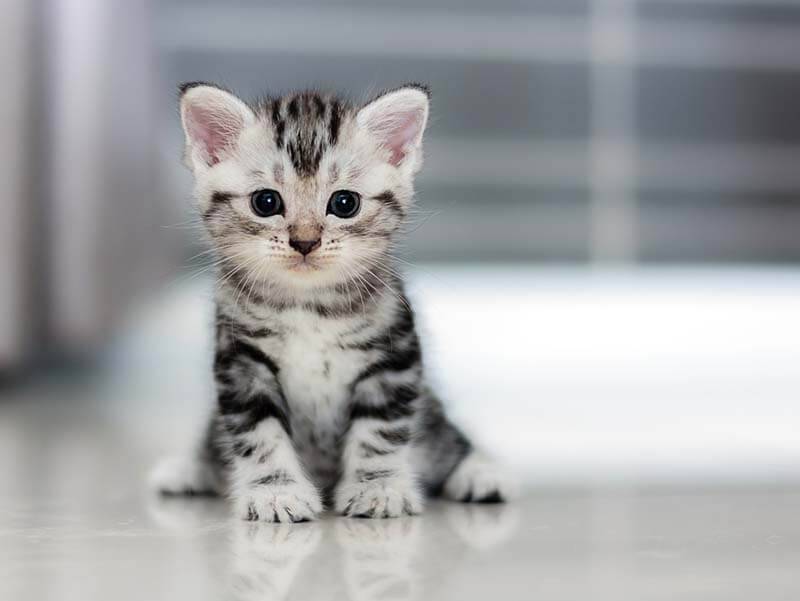
If pick up too late
It is never too late to take a pet into good hands, but if you do it after 7-8 months from the moment of birth, a number of problems may arise. Firstly, the longer the baby stays in one place, the more he gets used to it – a certain mode of behavior and daily routine develops, so it is more difficult for him to rebuild in a new way in the house of another owner. Secondly, with the onset of puberty, the pet begins hormonal changes, the restructuring of the body – the pet becomes an adult. This is a new and hectic period in the life of the animal, so at this time it is better to keep it in a comfortable familiar atmosphere and not subject it to additional stress. Therefore, in order for kittens to be healthy and happy, they can be given away at three months and until puberty begins.
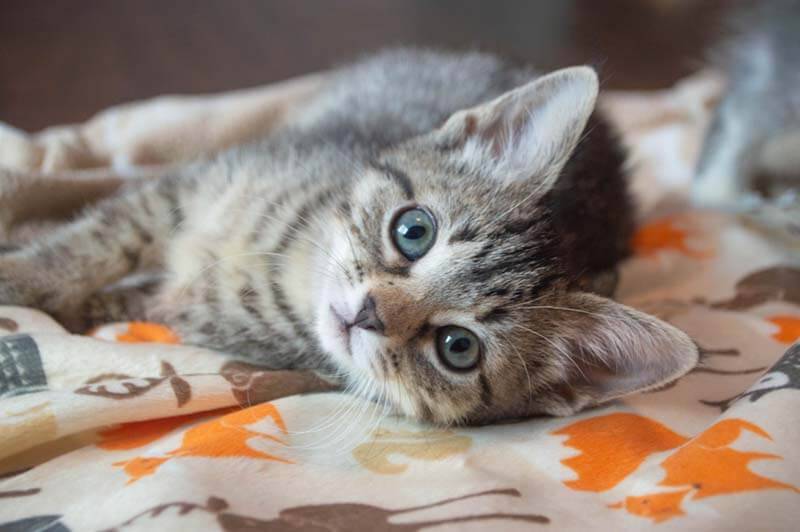
How to ensure a smooth transition to a new home?
The owners must take care in advance so that when the time comes to wean the kittens from the cat for good, they can be given to new hands without harm to the mother and her cubs. Here are some key tips to help ensure your pet has a smooth transition to a new home.
Separate Mother and Child Gradually
It is worth gradually starting the adaptation of the baby to life without a mother. So, at the onset of 4 weeks, he is weaned from mother’s milk, giving little by little complementary foods (wet food, low-fat sour-milk products and tender chicken). Also, a woman in labor and her offspring are bred for short periods of time, placing the baby in a cubbyhole with its own tray and bowl. A replacement for mother’s milk is poured into a bowl and the kitten is taught to lap from there on its own.
Take care of a grieving mom
Regularly taking away babies who have reached basic independence for a while, you will accustom the mother to their subsequent absence. This will also affect the amount of milk produced by her body, so that the level of nervous tension of the woman in labor will gradually decrease. Without smelling a child nearby, his mother will not feel an instinctive desire to find her child.
When the house is empty, the female will begin to yearn and raise her voice – at this moment it is important to support her in every possible way: to please her with treats and distract her from sadness with games. Gradually, she will get used to the new circumstances and return to normal life.
Prepare a feeding area
Decide in advance where your new ward will eat, and place separate bowls for food and water in this place. The location of the bowls should be such that nothing interferes with him in the process of eating.
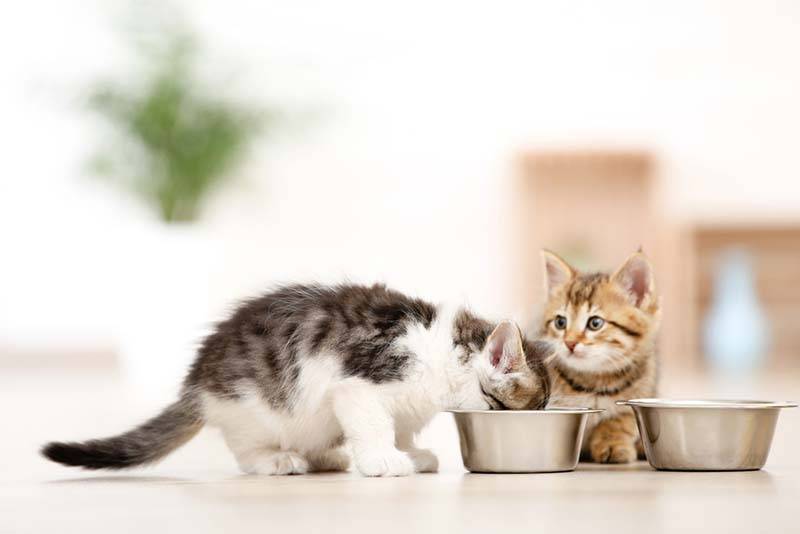
Set up a sleeping area
More than just food, our little fluffy brothers only like to sleep. Therefore, it will be better if, by the time the baby appears in the house, he will already be allocated a special comfortable place to relax and sleep. It is good if the couch is placed so that he can see what is happening around – curious predators like it.
Choose the right food
The new owner should ask the current owner of the kitten in advance what kind of food he gives him, and make sure that he is suitable for the ward. If everything is in order, you should not immediately transfer him to other foods, it is better to do this a little later, when he adapts to a new place. If not, be sure to choose the right one for age, breed and other features.
Set up a convenient tray
Choose a tray for your ward so that it is convenient for him to get in and out of it. Place it in the most suitable place for this. Also, choose a quality litter for the tray so that it is convenient for your pet to go to the toilet.
Hang a nail sharpener
Do not forget that your new friend, although small, is still a predator. And although his claws are not yet as strong and long as those of an adult, they still need to be sharpened regularly. Yes, and the pet will manifest these instincts. So buy and place a scratching post in a suitable place.
Buy toys for fun
A young pet, perhaps not immediately, but will definitely want to run, frolic and play with curious objects. Therefore, get toys that are interesting for an animal of this age in advance by consulting with the seller at the pet store.
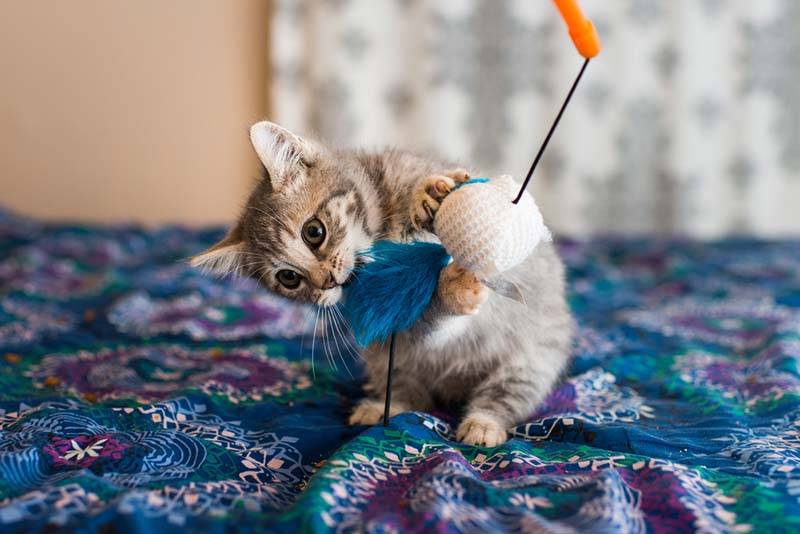
August 6 2021
Updated: August 6, 2021



